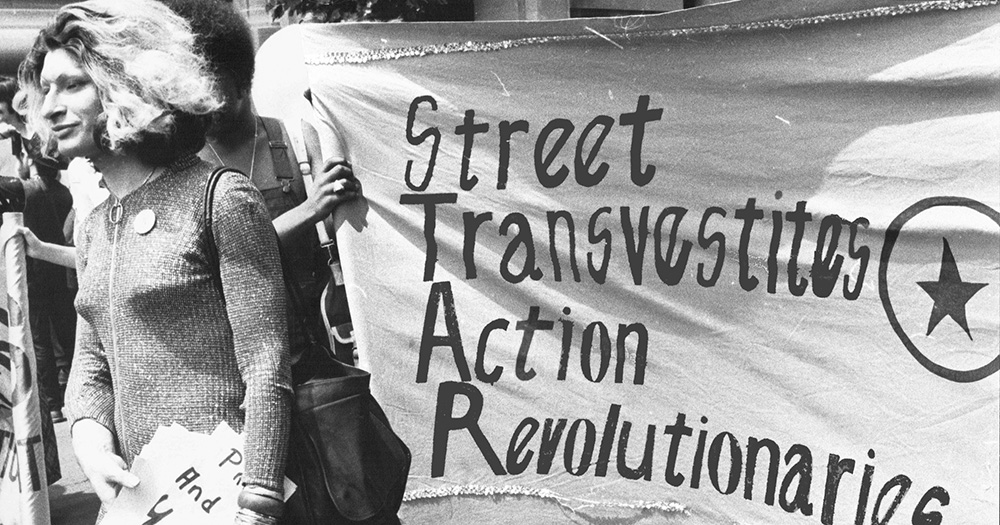Born on July 2, 1951, to a Puerto Rican father and Venezuelan mother, Sylvia Rivera was present during the 1969 police raids at Stonewall Inn in New York City. At only 17 years old, she resisted arrest, spurring multiple protests against the police raid. Although she didn’t throw the first Molotov cocktail, she claims she threw the second. Rivera then spent six sleepless days and nights fighting in the queer revolution.
From there, and as a kid who had gone through homelessness before, Rivera used her growing notoriety as an activist to start the Street Transvestite Action Revolutionaries or STAR with Marsha P. Johnson in 1971. She made sure that queer BIPOC kids who were cast aside from other groups had a community.
For a short while, Johnson and Rivera were able to provide food, housing, and clothing to LGBTQ+ people on the streets. They were working to make New York City a home.
However, while BIPOC trans women like Sylvia Rivera and Marsha P. Johnson pioneered the LGBTQ+ rights movement at large, many white queer people weren’t interested in intersectionality. Racism was rampant among some of the protest groups, as most only fought for white queer liberation.
What’s more, although drag queens were on the front lines, many organisers, such as those with the Gay Activist Alliance, had concerns about gender expression and thought that sanitising expression would help them to be taken seriously.
Many of the BIPOC and trans community members had been arrested during the first set of riots, but unlike Slyvia Rivera, they were still being held in prison. Rivera refused to let the protestors forget about those who put their lives on the line without the security of skin colour.
Before she was fighting for LGBTQ+ rights, she was part of the Black liberation movement, and she brought that fight to the gay rights movement. In a moment of pure anger, she read out the names of her imprisoned sisters.
It’s a common practice in protesting today, but the difference back then, was that those women had yet to be martyred. She wanted to fight for them while they were alive and actively suffering.
In 1973, Rivera participated in the Pride parade but was not invited to speak. Still, she took the mic and made a famous speech. After telling the crowd to quiet down, she said, “I have been thrown in jail. I have lost my job. I have lost my apartment for gay liberation and you all treat me this way? What(’s) wrong with you all?”
She added: “If it wasn’t for the drag queen, there would be no gay liberation movement. We’re the front-liners.”
After being booed away, Rivera took a break from life in the public eye and disappeared for almost 20 years. The tragic death of her close friend Marsha P. Johnson in 1992 brought her back to activism. She was louder than ever about the inclusion of trans and gender non-conforming people in the queer rights movement, and she made sure that the whole LGBTQ+ community was fighting together or not at all.
In early 2002, Sylvia Rivera passed away in hospital due to liver cancer. She was a fighter till the very end, spreading the important message that everyone must be included in the fight for queer liberation – we have to ensure that no one is left behind. Do it unapologetically. Do it for Sylvia.
© 2024 GCN (Gay Community News). All rights reserved.
Support GCN
GCN is a free, vital resource for Ireland’s LGBTQ+ community since 1988.
GCN is a trading name of National LGBT Federation CLG, a registered charity - Charity Number: 20034580.
GCN relies on the generous support of the community and allies to sustain the crucial work that we do. Producing GCN is costly, and, in an industry which has been hugely impacted by rising costs, we need your support to help sustain and grow this vital resource.
Supporting GCN for as little as €1.99 per month will help us continue our work as Ireland’s free, independent LGBTQ+ media.
